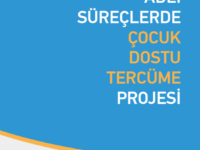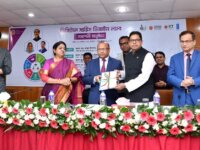Good Coffee is a Vocational Engagement Enterprise that organises a chain of social cafes for people with complex psychosocial disabilities. The cafes provide vocational rehabilitation on a work place and for some, introductory training is already given during their hospitalization in Mental Health Centers. The model enables continuity of care and transition between the realms of Health, Social Services and Employment. Good Coffee also reduces public funding, increases independent living and…
Case Study Library
Where innovations are collected and shared to disseminate and replicate good ideas

Innovations:
0
This website, as well as any data and map included herein, are without prejudice to the status of or sovereignty over any territory, to the delimitation of international frontiers and boundaries and to the name of any territory, city or area.
The single digital platform of the Peruvian State offers guidance information for citizens about procedures and services. It centralizes the institutional pages of all entities, as well as all their regulatory information, publications, news and campaigns. It is focused on being an accessible platform that can be used by all people on all devices, considering principles of accessibility and inclusion.
Τhe Municipality developed a centralized Internet of Things (IOT) management platform with the ability to control, record and analyze power consumption data and other resources in buildings and other infrastructures, which can function as a smart city base for the Municipality. With it, the Local Authorities will be able to obtain documented data and prepare relevant analyzes for the purpose of certifying the Municipality and submit proposals for financing projects to reduce energy consumption.
Explore.Porto challenges citizens and visitors to discover and explore the city. The service is provided through a digital platform, anchored in beacons placed in strategic points in Porto. Anyone equipped with a smartphone can instantly obtain information about where they are and their surroundings, as well as the best way to get around. This user-centered innovation has proven its impact on the adoption of local services by both citizens and visitors.
The project is aimed to prevent the loss of the rights of refugee children in Türkiye due to language and translation difficulties in judicial processes. Children involved in judicial processes, translators, judges-prosecutors and other auxiliary judicial staff have benefited very much from the project. For the first time, the capacity of translators has been strengthened and the secondary trauma risks of children have been mimized.
The AJSC has developed a new model to measure the determinants of the ‘quality of life’ in Ajman, covering six key areas of public service. The Model comprises a comprehensive factor measurement framework embedded on a sophisticated web-based application, with inbuilt protocols for scientific data collection, project management, data visualization and reporting. It systematically measures gaps and impact of interventions, via targeted performance assessment of framework factors.
Case Study
Farishte Dilli Ke – Empowering Citizens Through Accessible and Reliable Emergency Healthcare…
Farishte Dilli Ke (Hindi for Saviours of Delhi) uses innovative fiscal and non-fiscal incentives to encourage citizens to become Good Samaritans by helping victims of road traffic accidents, thermal burns and acid attacks without the fear of legal hassle or police enquiry. Under this scheme, the victims receive cashless treatment at any registered public or private nursing home or hospital across Delhi benefitting more than 18,919 people in the last 5 years.
Till 2017, the Ministries and govt. organizations took individual, decentralized & disintegrated initiatives to digitize public services. But most initiatives were facing challenges to provide services due to unplanned design and implementation. To overcome this, Digital Service Design Lab is an innovative method where service providers, service recipients and IT experts design digital services and prepare digitization masterplan together for their respective ministry/org. within just 6-7 days.
The rate of innovation often exceeds the speed at which regulatory systems can adapt, blurring lines between sectors and cutting across transitional regulatory and geographical boundaries. The RPF aims to keep the UK at the forefront of regulatory thinking and experimentation. It sponsors projects, led by regulators, aiming to help create a UK regulatory environment that encourages business innovation and investment. It is market-led and uses real-world innovation settings to deliver.
The number of traffic accidents resulting in human casualties have not shown any significant decrease in Estonia over the past ten years. While velocity is one of the factors to significantly increase the severity of the consequences, user-centric approaches also lead to the realisation that in Estonia speeding is a widely accepted social norm. An innovative approach was developed in order to test the effect of losing time, instead of money, as a potential measure to affect drivers’ behaviour.






